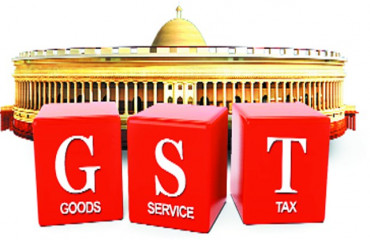
Nirmala Sitharaman wants the Central government’s indirect tax administration to ensure that ease of doing business and ease of tax compliance remain the tax administration’s guiding principle.
New Delhi: Finance minister Nirmala Sitharaman on Friday directed senior officials of the Central Board of Indirect Taxes and Customs (CBIC) to close investigations swiftly, speed up tax refunds, and make goods and services tax (GST) registration easier.
At a meeting in the capital, Sitharaman also asked the officials to resolve grievances of businesses promptly while maintaining focus on tackling tax evasion and wrongful tax credit claims.
The minister reviewed the performance of Central GST and customs authorities and asked the principal chief commissioners, chief commissioners, and director generals of CBIC to enhance performance, fill vacant posts, and enhance administrative efficiency.
Officials informed the minister that ₹2.23 trillion worth of GST evasion has been detected as of 2024-25, with voluntary payments totaling ₹28,909 crore.
Sitharaman was engaging with the top brass of the Central government's indirect tax administration to ensure that ease of doing business and ease of tax compliance remain the guiding principle for the tax administration while also ensuring compliance.
Reforms, reducing paper work for businesses, and de-regulation are top priorities for the Central government as it seeks to unlock India's unrealised economic potential. Sitharaman's budget speech on 1 February was centred around the reforms needed across sectors.
The minister's address to tax officials has set a clear tone—that efficiency, accountability, and taxpayer-centricity must drive indirect tax administration, said Rajat Mohan, senior partner at chartered accountancy firm AMRG and Associates.
"The sharp rise in GST audit coverage to 88.74% and the 94.3% return-filing compliance reflects a matured compliance ecosystem. However, the vast gap between ₹2.23 trillion in tax evasion detected and the ₹28,909 crore recovered demands immediate focus on enforcement efficiency," said Mohan.
India's tax efficiency
CBIC officials informed Sitharaman during Friday's meeting that the average time for resolving grievances had been reduced to nine days from the stipulated 21-day timeline, and that 95-97% of appeals are disposed of within a month.
This track record has placed CBIC among the top five out of 90 Central ministries in the Centralized Public Grievance Redress and Monitoring System rankings since February 2024.
The officials also told the minister the national average for monthly GST return filing stood above 94% in FY25, and that 85% of tax refund claims are processed within the statutory 60-day limit. GST audit coverage rose from 62.21% in FY23 to 88.74% in FY25.
Sitharaman directed the officials to improve in performance parameters such as GST registration, processing of refunds, and handling taxpayers' grievances.
"Simplifying GST registration, clarifying documentation for principal place of business, and mandating helpdesks are much-needed reforms that will ease on-ground hurdles for taxpayers," said Mohan of AMRG and Associates.
Amit Maheshwari, tax partner at AKM Global, a tax and consulting firm, said GST audit coverage has improved significantly, with zero repeat audits in three years—a move that ensures fairness without burdening taxpayers.
Sitharaman also urged customs authorities to reduce the dwell time of consignments at seaports, airports, and inland container depots for both imports and exports, and emphasised that faster cargo clearance is crucial to enhance India's global trade competitiveness and ease of doing business.
The minister also directed that disciplinary proceedings against officials at different levels be concluded expeditiously.
